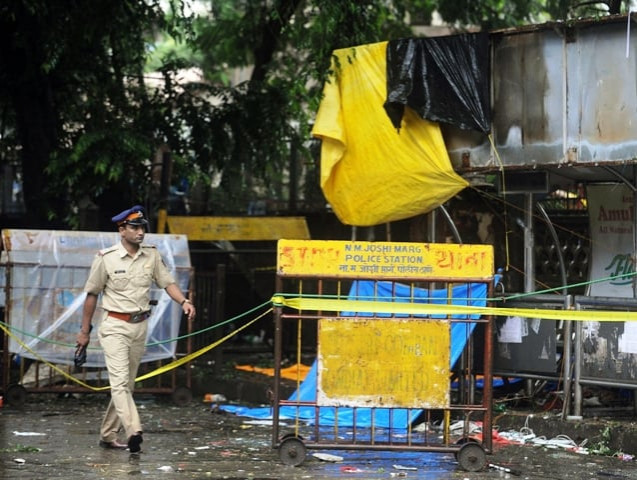India probes Mumbai 'terror' blasts
Home Minister P. Chidambaram refuses to speculate about the group behind the coordinated attacks at rush-hour.

Home Minister P. Chidambaram refused to speculate about the group behind the coordinated attacks at rush-hour on Wednesday in India's commercial hub, saying authorities had received no prior warning or claim of responsibility.
"All groups hostile to India are on the radar. We are not ruling out anything, we are not ruling in anything. We are looking at everyone," he told reporters after visiting the scene of the blasts.
The bombs made of ammonium nitrate, an ingredient for fertiliser commonly used in improvised devices, went off within 15 minutes of each other in two crowded commercial areas of south Mumbai and a central residential district.
"I think they chose the places because of the density of the population and the very congested nature of these areas," Chidambaram said. "They chose places where even a low-intensity blast could have a great impact."
The official death toll stood at 17, he said, though the figure could rise. A total of 131 injured were admitted to hospital, of whom 23 were in a serious condition.
Asked why the commercial and entertainment capital of India had again been hit, the minister replied that all cities in the emerging Asian nation were vulnerable to attacks.
"We live in the most troubled neighbourhood in the world. Pakistan-Afghanistan is the epicentre of terror," he said.
The strongest of the coordinated explosions hit busy jewellery trading districts in the south of the city, the same area targeted two and half years ago in the traumatic 2008 assault blamed on the Pakistan-based Lashkar-e-Taiba militant group.
The trauma of that attack, 60 hours of mayhem as 10 gunmen rampaged through the main railway station and luxury hotels, killing 166, is still fresh in the minds of Mumbaikars.
Salim Dharolia, a small-time diamond trader who was waiting to collect the body of his son at the Saifee hospital, wondered aloud why more blood had been shed in his city.
"I have lost my only son. He got married two months ago. Why are people of Mumbai being targeted all the time? What is our crime?" he told AFP.
Authorities said forensic teams from New Delhi and Pune, a city 100 kilometres from Mumbai, had collected samples from the blast sites. Police were also hoping closed-circuit television footage would provide clues.
"I am confident that... we will be able to zero in on the group that caused these bomb blasts," Chidambaram added.
Relatives of the hurt and deceased gathered at the 13 city hospitals where victims were transferred in ambulances, cars and trucks driven by locals who rushed to help.
Among the dead was real estate agent R.K. Shah, 47, whose distraught wife had identified his body at Saifee hospital.
"He was scheduled to show two shops for rent to his clients," Pratika Shah told AFP. "Before leaving home, he had told me that he would host a big party for his friends if the deals materialised.
"I still can't believe that he is dead," she said.
Home Secretary R.K. Singh said the three bombs had been planted on a bus shelter, under garbage and inside an umbrella.
Prime Minister Manmohan Singh was scheduled to fly to Mumbai later in the day.
The United States and the United Nations led international condemnation of the attacks, with Secretary of State Hillary Clinton calling them "despicable" and vowing to visit India next week as planned.
While the perpetrators were not known, initial suspicions fell on two groups that have targeted India in the past: the home-grown Indian Mujahideen and the Pakistan-based Lashkar-e-Taiba (LeT).
The last major bombing in India was in February last year in Pune, when a blast at a packed restaurant killed 16 people including several foreigners.
In 2006, a series of high-powered blasts on suburban trains in Mumbai killed 187 commuters and left 800 injured, an attack that India also blamed on Pakistan-based militants.
India broke off a peace dialogue with Pakistan after the 2008 assaults and talks between the two countries only resumed earlier this year.
The Indian and Pakistani foreign ministers are scheduled to meet in New Delhi in the last week of July.
A statement from Pakistan's foreign ministry condemned Wednesday's attacks and said President Asif Ali Zardari and Prime Minister Yousuf Raza Gilani had "expressed their deepest sympathies to the Indian leadership".



















COMMENTS
Comments are moderated and generally will be posted if they are on-topic and not abusive.
For more information, please see our Comments FAQ